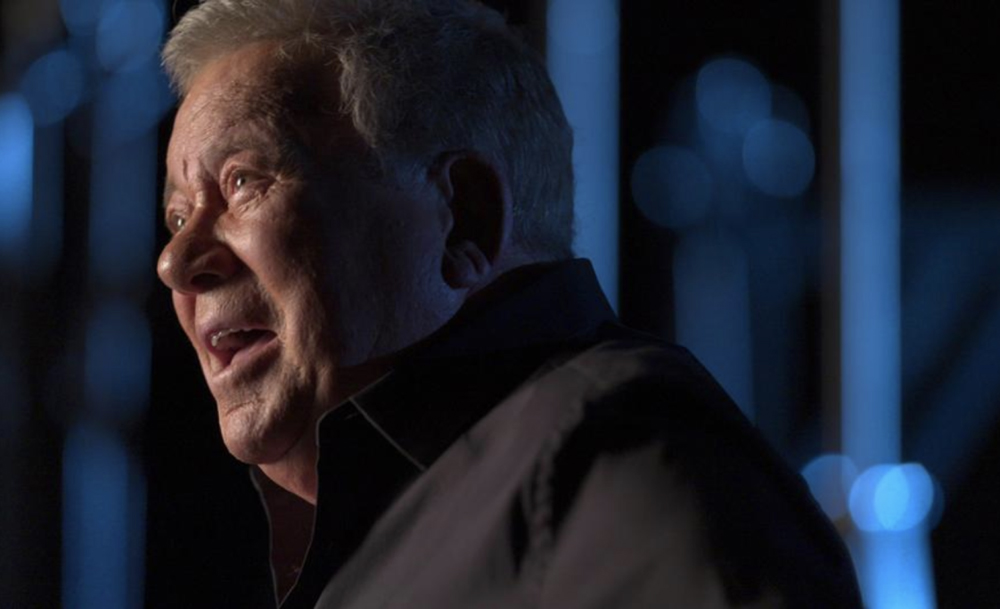You wouldn’t expect a great insight on acting to emerge from William Shatner’s experience on “Boston Legal” by which point the actor looked so relaxed in his own skin that he wasn’t inhabiting a character so much as it became him, yet in “You Can Call Me Bill,” he recalls how he latched onto series creator David E. Kelley’s habit of having the character introduce himself with his full name, realizing if he changed the inflection every time he’d say “Denny Crane,” it wasn’t to identify who he was, but instead to get a reaction from the person he was making himself known to, picking up the trait from how animals without full speech will articulate themselves. Another filmmaker charged with a career-spanning look at the former “Star Trek” captain might not even think to ask about that or see it as an unnecessary digression, but Alexandre O. Philippe, a director best known for tapping into the subconscious of his subjects when deconstructing their work with ridiculous rigor in such films as “78/52: Hitchcock’s Shower Scene” and “Memory: The Origins of ‘Alien’” considers everything from Shatner’s Priceline commercials to serving as Christopher Plummer’s understudy to play the lead in “Henry V” to get at a genuinely astute and captivating look at an actor’s life, intriguing even if it weren’t specifically this actor, although all the more compelling because of it.
Rather than abiding a typical biographical chronology, the film is arranged like the galaxy that Shatner’s best known character used to travel in search for meaning anywhere it could be found, yet those hoping that “You Can Call Me Bill” will spend most of its time with him telling stories about commandeering the Starship Enterprise should look elsewhere. The film is cleverly designed to acknowledge his best known role while boldly going to less inspected corners of his life and interests, suiting the man well when he speaks with plenty of free association and tosses off more questions than answers to spark new ideas. He seems to come across a profound truth when drifting into his thoughts about approaching death, concluding “That is what I believe in fully for the next five minutes, then I’ll believe something else” and as clips from a diverse career flood the screen, you realize how self-aware that statement is, getting at the essence of his appeal to audiences when he’s so deeply invested in what he’s saying at any given moment and his ability to let go has been a part of enduring as a person over his 90 years.
By taking such a roundabout path through his mind, “You Can Call Me Bill” bound to be more rewarding to hardcore fans who may already think they know everything about Shatner and more casual viewers who just want to hear an interesting story when his thoughts really do have a spontaneity to them and he’s connecting things in the moment, linking his work as Captain Kirk to when he played Alexander the Great early in his career, for instance. When Shatner recalls how Laurence Olivier once shared with him that he bluffed his way through an Oscar speech with a mishmosh of Shakespeare that captivated the audience, even if it made no sense, it seems like he’s stumbled onto the secret of life in accepting that it’s something we all just make up as we go along. This makes the film’s culmination with Shatner’s recent trip up to the stars in the Blue Origin after pretending to for all those years particularly poignant, seemingly achieving not only an apex for humankind to be able to look back at the earth but as an actor to be indistinguishable from the character he played and as he considers the new perspective that the experience gave him — a renewed concern for the environment, you realize traversing all those new frontiers hasn’t only given him the wisdom of observation but the inclination to share what he knows, making this hour-and-a-half with him as generous with provocative ideas as it is in spirit.
“You Can Call Me Bill” does not yet have U.S. distribution.




